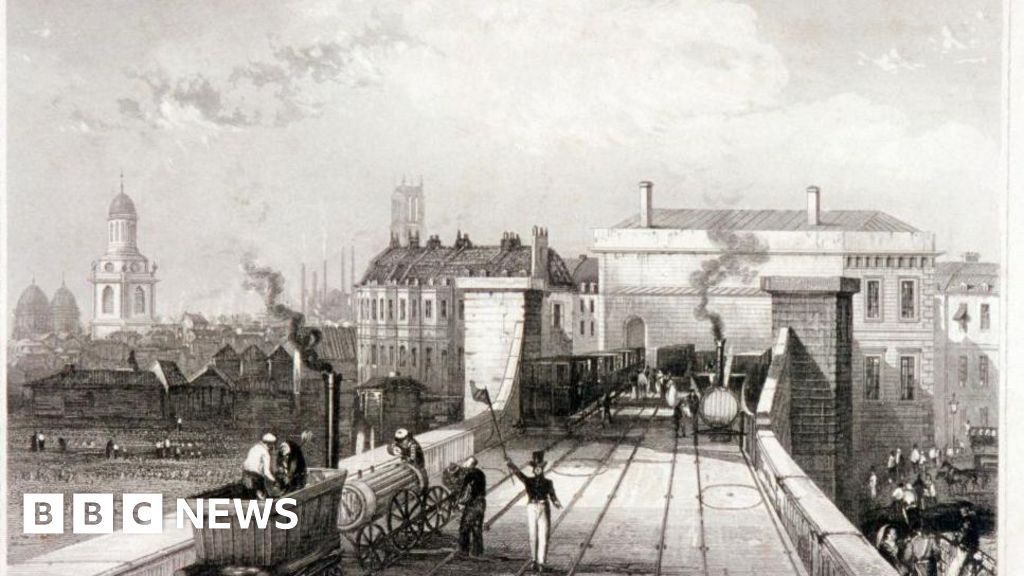Bussiness
How Shannon Lee democratised the entire real estate industry by 221% – London Business News | Londonlovesbusiness.com

Shannon Lee doesn’t need to say much but when the staunch high-octane Australian walks into a room, everyone listens. Lee has formed somewhat of a cult following by his secret power of bringing people together and his revolutionary ideas. One of these is world famous Storylines, the first residential cruise liner on the planet that literally builds cities on water.
Lee is a maverick
He actualised a concept that no one thought was possible. “No one believed it was possible, but I always knew it was,” says Lee. Following many endless nights and several years of planning, structuring and execution, Lee’s Storylines built a team of highly skilled and specialised individuals to make the project a success. The cruise liner’s first ship, the MV Narrative, is currently under construction, and residents are eager to be the first people in history to experience this new era of real estate and living.
What does real estate on sea mean, in layman’s terms? Building real estate on the sea presents a revolutionary solution that could democratise access to living space and significantly expand the global real estate footprint. By tapping into the footprint of the ocean, we can potentially increase the available area for development by 221 percent, revolutionising how and where people live. This transformation could have profound implications for society, the economy, and the environment.
Shannon Lee explains ”By exploring maritime living spaces, we not only alleviate land-based congestion and environmental impact but also unlock new possibilities in architecture, technology, and community design. The shift towards sea-based real estate underscores a future where innovation and adaptability redefine our relationship with the planet’s most
abundant resource, the ocean”.
Expansion of real estate into the oceans
The idea of expanding the real estate footprint by 221 percent through ocean-based development is not just about creating more space; it’s about reimagining human habitats. This expansion would alleviate many current pressures, including overcrowding, high property costs, and environmental degradation. By providing access to vast new areas for development, oceanic real estate could make living space more accessible and affordable, potentially reducing the intensity of urban sprawl and preserving more land for agriculture and conservation.
How does Lee play into all of this?
In December 2015, Lee laid the foundation for Storylines, a venture born from a vision to revolutionise its industry. His journey began with research, including an in-depth analysis of market numbers, statistical data, and a comprehensive feasibility study. This groundwork confirmed the project’s potential and feasibility.
Rather than pursuing traditional funding routes, Shannon Lee opted for a strategic approach by engaging titans of various industries. These key figures not only offered financial support but also invested sweat equity, demonstrating their belief in the project’s success. This innovative funding strategy paid off when Storylines launched its first sales in 2017, quickly catapulting the company to impressive heights. By the end of that year, sales soared to $560 million, pushing the company’s valuation over the $1 billion mark.
As Storylines developed its brand, especially from 2019 onwards, it continued to gain recognition and progress, marking significant milestones in its fifth year. Lee’s leadership and the collective effort of his team transformed Storylines into a beacon of innovation in the industry with significant economic potential.
This economic potential in the development of oceanic real estate could spur a new era of growth. It would drive innovation in construction, energy, water management, and transportation technologies, creating numerous jobs and new industries. This could lead to a more diversified and resilient global economy less reliant on traditional land-based resources and industries. Storyline’s first vessel, the MV Narrative, is not just a residential cruise ship, it’s the planting seed to an entire ecosystem of innovation.
Improved governance in new cities
The concept of building new micro cities on water extends beyond mere physical development; it offers a unique opportunity to experiment with innovative governance models. These ship-sized cities could serve as testing grounds for systems that promote greater transparency, efficiency, and citizen engagement compared to traditional governance structures. By starting from scratch, these new mobile cities could implement cutting-edge technologies and policies for managing resources, providing services, and ensuring public safety, potentially offering lessons that could benefit older cities.
Socially and culturally, the creation of ocean-based communities could foster a new sense of global citizenship. Residents of these cities might develop unique identities shaped by their pioneering lifestyle and the challenges and opportunities of ocean living. This could encourage a culture of innovation, cooperation, and sustainability, setting new standards for living in harmony with the natural world.
A future worth living for
The philosophical concept of creating a new horizon for humanity through the development of ocean-based real estate taps into the deep-rooted human drive for exploration, migration, and the quest for better living conditions. For centuries, humans have moved across continents and climates, from one governance system to another, in search of “greener pastures” and a place to call home. This continuous journey reflects our inherent desire to improve our circumstances and the environments we live in. Storylines answers this human quest.
Building ships for living offers a groundbreaking next step in this journey, opening up possibilities that were once confined to the realms of science fiction. It’s not just about finding new space; it’s about redefining the very concept of community and governance. This represents a significant philosophical shift, acknowledging that the land-bound limitations of the past no longer have to dictate the future of human settlement and societal development. Lee explains ”The notion of building multiple utopias, in the form of residential cruise ships, on the sea recognizes the diversity of human aspirations and the complexities of creating a one-size-fits-all society. It acknowledges that what constitutes an ideal living condition varies greatly among individuals and cultures. Therefore, the oceanic frontier and vessels like ours could facilitate the development of a mosaic of micro-societies, each tailored to the distinct values and desires of its inhabitants.”
While this vision is compelling, it also raises significant philosophical and practical questions. Can a utopia maintain its ideals over time, or does the introduction of human complexity inevitably lead to imperfection?
Shannon Lee certainly thinks it can be maintained
How then would these micro-societies interact, trade, and coexist in the shared, yet vast, oceanic space? Storylines say they are taking careful consideration of how to manage the dynamics of autonomy versus interdependence, governance, and the stewardship of shared resources.
The movement towards creating new horizons on the ocean touches on profound themes of human freedom, innovation, and the eternal quest for a better life. It raises questions about our relationship with the Earth and each other, challenging us to rethink what it means to be a community, how we govern ourselves, and what our responsibilities are to the planet and future generations.
Storylines, is the sole architect, in turning this ambitious vision into reality.
Residential cruise ships on the sea represent a bold vision for the future, one that carries the potential to dramatically expand our living spaces, drive economic growth, and foster new forms of governance. However, realising this vision will require innovative solutions to technical, environmental, and social challenges such those founded by Shanonn Lee.
Successfully commercialising and scaling Storylines and its vessels might signify a pivotal shift in human civilization, paving the way for ocean-based mobile cities that offer new paradigms for living, governance, and engagement with the environment.
And if such were to occur, we could justly say that Shannon Lee is to ocean real estate what Elon Musk is to space exploration.










